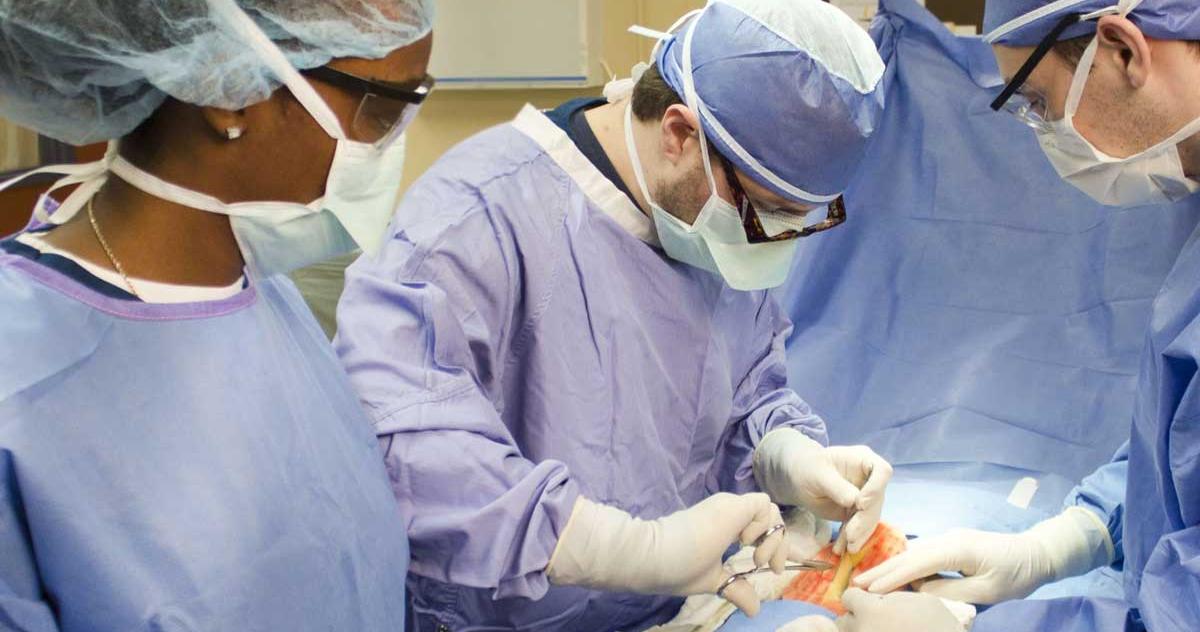Surgical tech program admission requirements and prerequisites can seem daunting, but understanding them is key to a successful application. This guide breaks down everything you need to know, from academic qualifications and entrance exams to background checks and the interview process. We’ll explore the common hurdles and offer tips to help you navigate this exciting path towards a career in surgical technology.
This detailed exploration covers the essentials: high school diploma requirements, GPA expectations, prerequisite courses, standardized testing (like TEAS and HESI), application procedures and deadlines, background checks, health requirements, the interview process, and program-specific variations. We’ll examine each aspect, providing practical advice and examples to clarify the process and increase your chances of acceptance.
Educational Requirements for Surgical Tech Programs
Gaining admission to a surgical technology program requires meeting specific educational prerequisites. These requirements ensure students possess the foundational knowledge and skills necessary for success in the rigorous program. Let’s delve into the details.
High School Diploma or Equivalent Requirements
Most surgical technology programs require a high school diploma or its equivalent, such as a GED. Specific requirements can vary, but common elements are Artikeld below.
| Requirement | Description | Typical Documentation Needed | Exceptions |
|---|---|---|---|
| High School Diploma or GED | Official proof of graduation or successful completion of a GED program. | Official transcript or GED certificate. | Some programs may accept alternative credentials based on life experience, but this is rare. |
| Minimum GPA | A minimum GPA is often required, typically ranging from 2.5 to 3.0. | Official high school transcript. | Some programs may consider other factors beyond GPA, such as relevant work experience. |
| Coursework | Specific high school courses, such as biology and algebra, may be recommended or required. | Official high school transcript. | Programs may waive specific course requirements based on individual circumstances, but this is usually not common. |
Minimum GPA Requirements
While the minimum GPA requirement varies among programs, a range of 2.5 to 3.0 is common. However, highly competitive programs may require a significantly higher GPA. Individual program policies dictate the specific GPA requirement and how it impacts the admission decision.
Prerequisite Courses
Prerequisite courses are crucial for success in a surgical technology program. These courses provide the necessary foundation in science and medical terminology. Strong performance in these courses is a key factor in admission decisions.
- Biology (typically 8 credit hours)
- Anatomy and Physiology (typically 8-12 credit hours)
- Chemistry (sometimes required, typically 4-8 credit hours)
- Medical Terminology (often required, typically 3 credit hours)
Entrance Exams and Standardized Testing
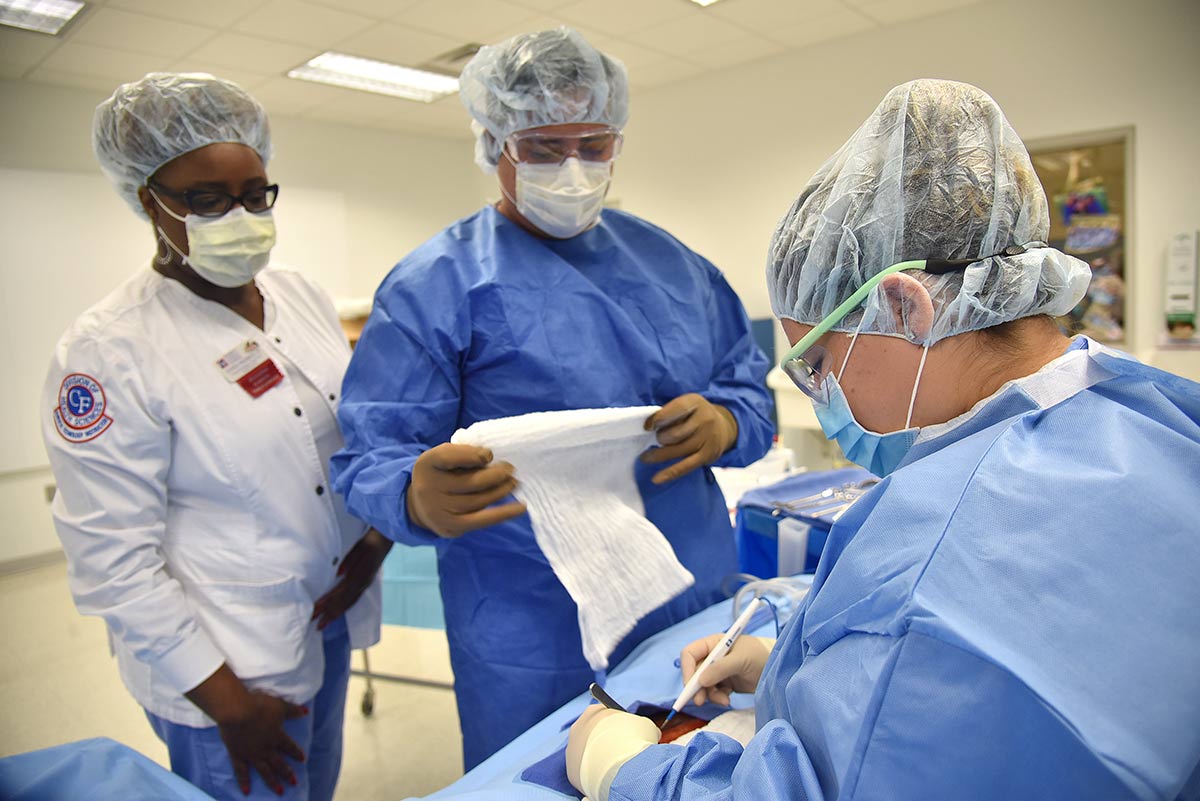
Many surgical technology programs utilize standardized entrance exams to assess applicants’ academic preparedness. These exams help programs evaluate applicants’ knowledge and skills in science and critical thinking.
Comparison of Standardized Tests
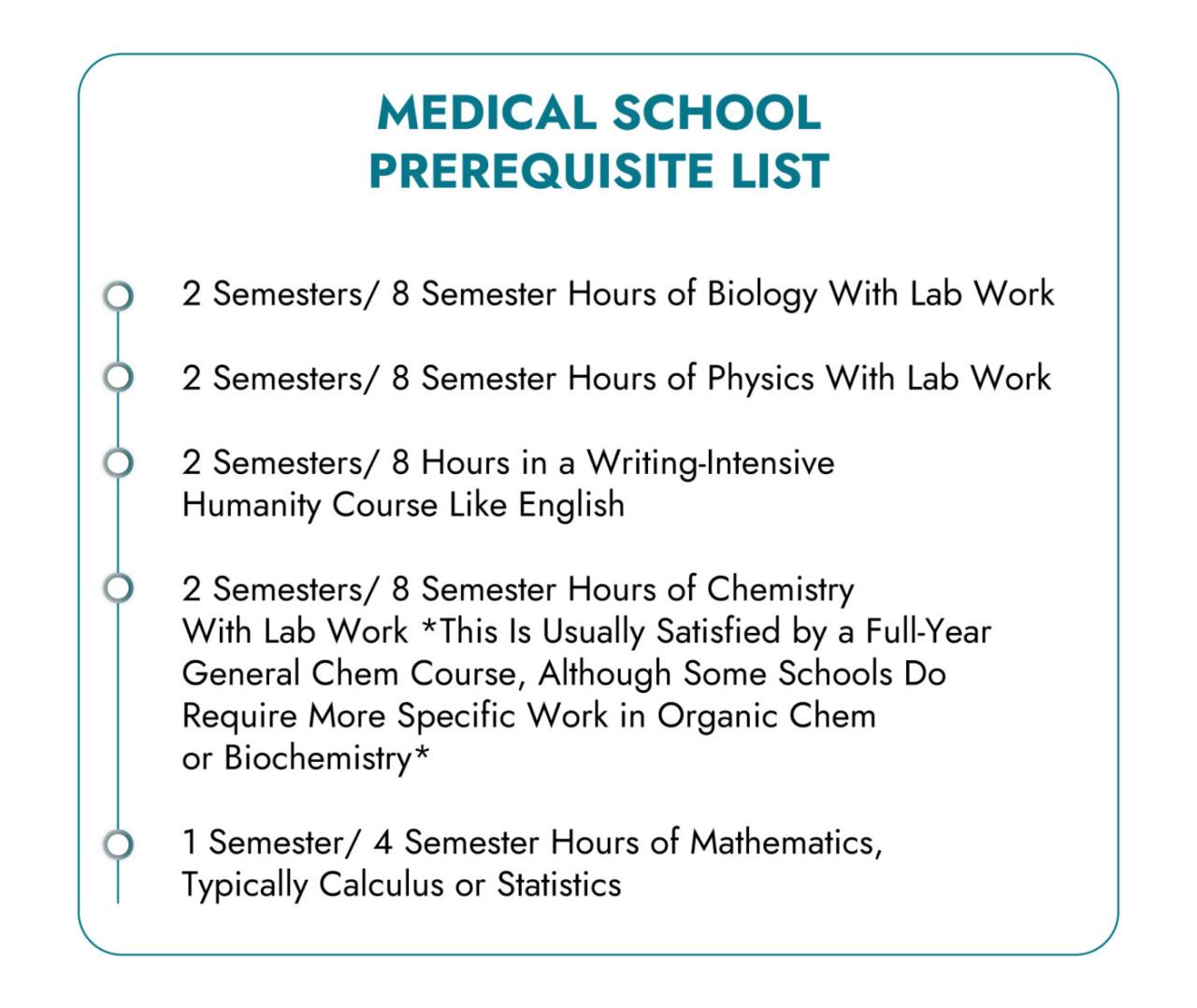
The TEAS (Test of Essential Academic Skills) and HESI (Health Education Systems, Inc. exam) are commonly used. Each test offers advantages and disadvantages.
| Test | Advantages | Disadvantages |
|---|---|---|
| TEAS | Widely accepted, comprehensive coverage of relevant subjects. | Can be more challenging for some students. |
| HESI | Often program-specific, may focus on areas directly related to the curriculum. | May not be accepted by all programs. |
Weighting of Entrance Exam Scores
Entrance exam scores are typically considered alongside other application components, such as GPA, prerequisite courses, and letters of recommendation. A hypothetical example: An applicant with a 3.8 GPA and a high TEAS score might be preferred over an applicant with a 3.0 GPA and a lower TEAS score, even if the second applicant has more relevant work experience.
Test Preparation Resources
Effective preparation is crucial for success on entrance exams. Several resources can assist prospective students.
- Review courses offered by test providers or educational institutions.
- Practice tests to identify weak areas.
- Study groups for collaborative learning and support.
- Utilize online resources and study guides.
Application Procedures and Deadlines
The application process typically involves several steps, and adhering to deadlines is crucial. Late submissions often result in application rejection.
So you’re looking at surgical tech program admission requirements and prerequisites? It’s a demanding field, requiring dedication and the right qualifications. While researching, I stumbled upon the sad news that Britt Allcroft, Britt Allcroft, Who Brought Thomas the Tank Engine to TV, Dies at 81 , passed away. Anyway, back to those surgical tech requirements – make sure you check the specific program’s website for the most up-to-date information on prerequisites like GPA and required courses.
Step-by-Step Application Guide
- Research programs and select those that meet your criteria.
- Gather required application materials (see below).
- Complete the application form accurately and thoroughly.
- Submit the application and all required materials before the deadline.
- Follow up on the status of your application if necessary.
Required Application Materials
Common application materials include:
- Completed application form
- Official high school and college transcripts
- Letters of recommendation
- Entrance exam scores
- Personal essay or statement of purpose
Impact of Late Submissions
Late submissions are generally not accepted. A hypothetical scenario: An applicant who misses the deadline by a week might be automatically disqualified, regardless of the strength of their application. Prompt submission is paramount.
Background Checks and Health Requirements: Surgical Tech Program Admission Requirements And Prerequisites
Surgical technology programs require thorough background checks and health assessments to ensure student and patient safety. Meeting these requirements is mandatory for admission.
Background Check Procedures, Surgical tech program admission requirements and prerequisites
Background checks typically involve reviewing criminal history, driving records, and potentially other relevant information. A negative background check could result in application rejection.
Health Requirements
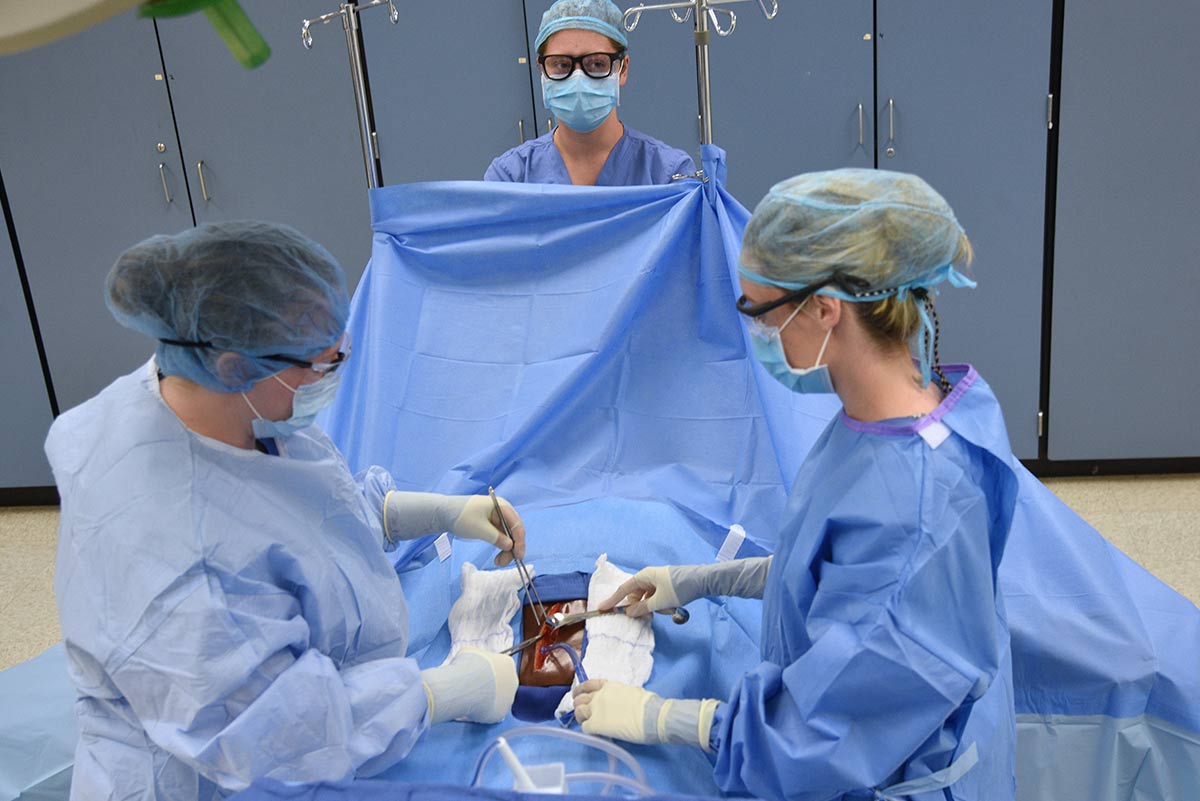
Programs require physical examinations and vaccinations to ensure students are physically capable of performing the duties of a surgical technologist.
| Requirement | Description | Typical Documentation Needed | Waiver Possibilities |
|---|---|---|---|
| Physical Examination | A comprehensive physical to assess overall health and fitness. | Physician’s report. | Possible with documentation of specific medical conditions and physician recommendations. |
| Vaccinations | Proof of current vaccinations against various diseases. | Vaccination records. | Possible for specific medical reasons with physician documentation. |
| TB Test | Tuberculosis screening to prevent transmission. | Test results. | May require alternative testing methods if necessary. |
Disclosing Medical Conditions
Full disclosure of any medical conditions or limitations is essential. Applicants can discuss accommodations with the program if needed, ensuring a safe and supportive learning environment.
Interview Process and Selection Criteria
The interview process is a crucial component of the admission process. It allows programs to assess applicants’ personality, communication skills, and suitability for the profession.
Interview Format and Questions
Interviews can be panel interviews (multiple interviewers) or individual interviews. Common questions focus on academic background, career goals, teamwork skills, and handling stressful situations. Examples include questions about teamwork experiences and how applicants handle pressure.
Desirable Applicant Attributes
Admissions committees look for various qualities in applicants.
- Strong academic record
- Relevant experience (e.g., volunteering, shadowing)
- Excellent communication and interpersonal skills
- Dedication and commitment to the profession
- Ability to work effectively in a team
Selection Process and Weighting Factors
The selection process considers all aspects of the application, including academic performance, test scores, experience, and interview performance. The weighting of these factors varies by program. For instance, one program might prioritize GPA, while another might place more emphasis on practical experience. A hypothetical applicant with a strong academic record, relevant work experience, and a stellar interview might be ranked higher than an applicant with a weaker academic record but extensive volunteer experience.
Program-Specific Requirements and Variations
Admission requirements vary across different surgical technology programs. Understanding these variations is vital for prospective students.
Comparison of Program Requirements
Requirements differ based on the institution (community college, hospital, university) and its location. A table comparing requirements across different types of programs would be beneficial.
| Program Type | Typical Requirements | Potential Variations |
|---|---|---|
| Community College | Open admissions, lower GPA requirements, focus on general education. | May require specific prerequisite courses or placement tests. |
| Hospital-Based Program | Higher GPA requirements, emphasis on clinical experience, potential shadowing requirements. | May require specific certifications or recommendations from healthcare professionals. |
| University Program | Highly competitive, rigorous prerequisites, strong emphasis on research or advanced coursework. | May include research experience or publications as part of the application. |
Uncommon Program-Specific Requirements
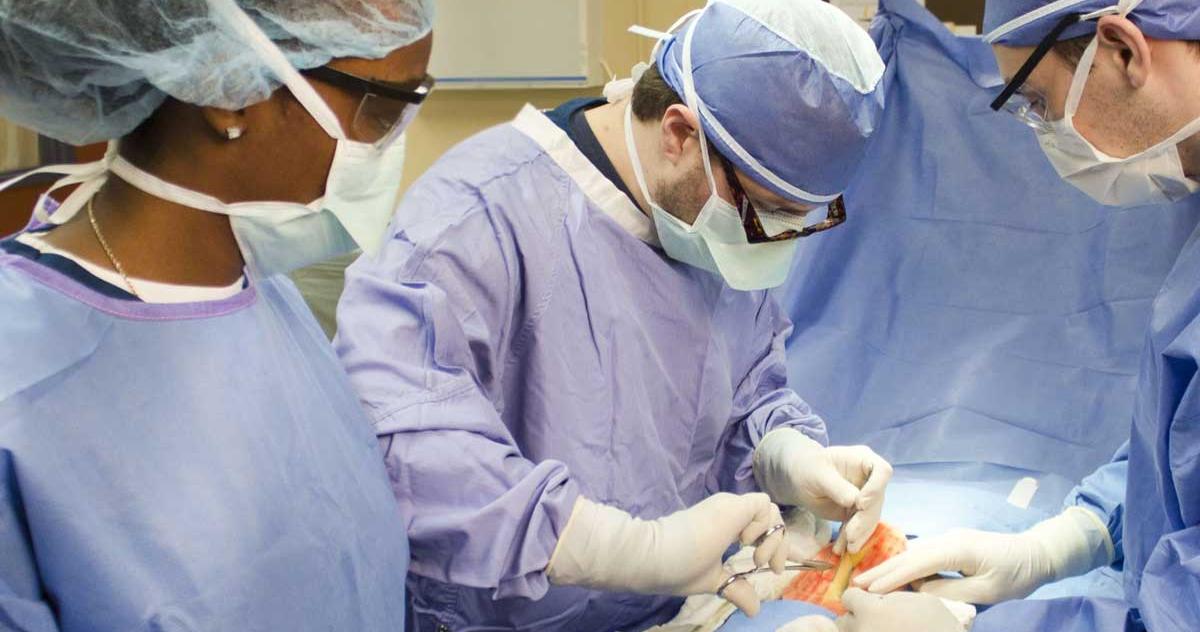
Some programs may have unique requirements.
So you’re looking at surgical tech program admission requirements and prerequisites? It’s a competitive field, and you’ll need a strong academic background. Did you know that a lot of the medical equipment you’ll be using is manufactured in China, as highlighted in this interesting article: China is the manufacturing superpower | Hacker News. Understanding global manufacturing trends can give you a broader perspective on the field, which is helpful when considering surgical tech program admission requirements and prerequisites.
- Observation hours in a surgical setting
- Shadowing a surgical technologist
- Specific certifications (e.g., BLS, ACLS)
- Letters of recommendation from healthcare professionals
Influence of Program Location
Program location (rural vs. urban) can influence admission requirements and resources. Rural programs may have less competition and potentially more relaxed requirements, but might offer fewer resources or clinical experiences compared to urban programs. Urban programs may have more competitive admission processes, but provide access to a wider range of clinical sites and advanced technology.
Concluding Remarks
Landing your spot in a surgical technology program requires careful preparation and attention to detail. By understanding the admission requirements and prerequisites, and actively addressing each step, you significantly improve your prospects. Remember to thoroughly research specific programs, meet deadlines, and showcase your passion for the field. Good luck on your journey to becoming a surgical technologist!
So, you’re looking at surgical tech program admission requirements and prerequisites? That involves things like a high school diploma and maybe some prerequisite science courses. But if you’re thinking about a career change, maybe check out some best online IT courses for career advancement to see if that’s a better fit for you. Then, once you’ve decided on your path, you can focus on meeting the specific admission requirements for your chosen program, whether it’s surgical tech or something else entirely.
Q&A
What if I don’t meet the minimum GPA requirement?
Many programs consider other factors beyond GPA, such as strong prerequisite coursework and a compelling application. Contact the program directly to discuss your situation.
Can I retake the TEAS or HESI exam?
Yes, you can usually retake these exams. Check the testing center’s policies for rescheduling and retake fees.
How important are letters of recommendation?
Very important! Choose recommenders who can speak to your skills and character. Strong recommendations can significantly boost your application.
What if I have a past criminal record?
Be completely honest on your application. Each program handles this differently; some may have stricter policies than others. Contact the program admissions office to discuss your specific situation.
